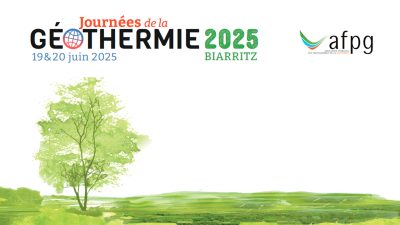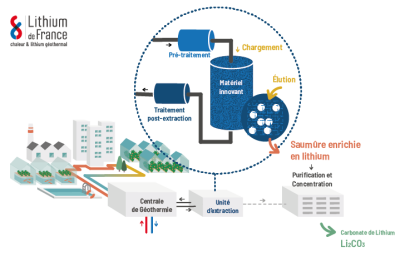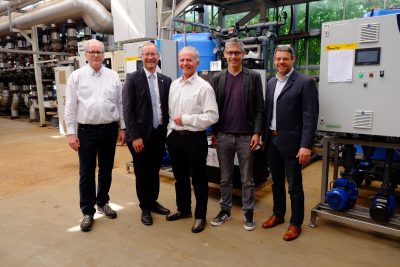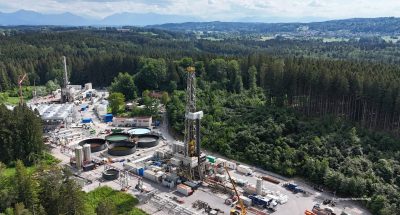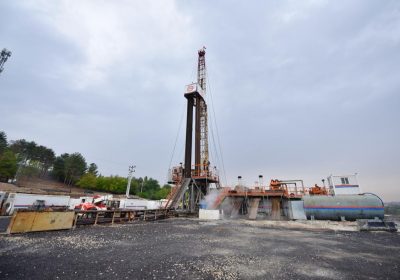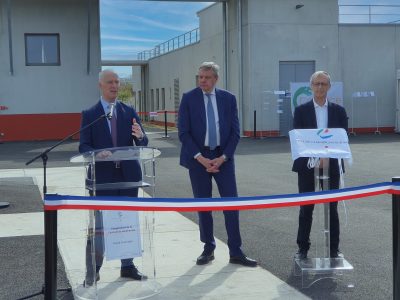KfW, Munich RE introduce risk protection mechanism for geothermal in Germany
A joint development risk protection mechanism for geothermal in Germany has been announced by KfW and Munich Re at the Praxisforum Geothermie Bayern event.

German federal development bank KfW and insurance company Munich Re have announced a joint loan programme to hedge exploration risks and support further geothermal development in Germany. The new financial risk protection mechanism was announced by Andreas Ronge from KfW and Matthias Tönnis from Munich Re during the Praxisforum Geothermie.Bayern event in Pullach.
Pullach’s mayor Susanna Tausendfreund, a pioneer of geothermal energy, welcomed the participants to the event. In 2002, the municipality of Pullach in the Isar Valley founded Innovative Energy for Pullach (IEP), and since 2005 households and businesses have benefited from the regional, climate-friendly, safe heat from the depths. The Pullach network has been steadily expanded since then, and further drilling is planned. A new feature is the sale of CO2 certificates. On today’s day of the congress, the proceeds went to Pullach’s partner municipality in Ukraine to help them survive the coming winter.
“Bavaria is a pioneer in geothermal energy. Today we both want to help to ensure that the topic is not only pushed in Bavaria, but nationwide,” said Andreas Ronge. “We hope that with the program we can help to implement projects that might not otherwise be possible.”
“A huge compliment to KfW for the short time in which such a program was able to be implemented here,” added Matthias Tönnis.
Conditionally repayable loan for feasibility studies
A geothermal drilling costs many millions of euros. If no – or too little – hot deep water is found underground, the money is literally wasted. This is a risk that is difficult for municipalities and public utilities in particular to bear.
To held manage these risks, KfW is planning a geothermal energy development loan that will seamlessly follow on from BAFA funding for, among other things, feasibility studies prior to drilling. The mechanism combines financing with risk protection. The loan from the federal funding is conditionally repayable and provides for debt relief of up to 100 percent of the bank loan for the drilling if no or only partial discovery is made. It can be combined with the federal funding for efficient heating networks (BEW).
“This should also secure financing that might not otherwise be available through banks,” added Andreas Ronge. The program is expected to support around 65 projects over the next three years, and 100 projects are targeted for funding by 2030.
The start is planned for January 2025, but is still subject to budgetary approval. Otherwise, everything is prepared. “We have spoken in detail with the four major banking associations and interested financing partners, whom we inform as standard before introducing programs,” said Ronge.
Insurance for geothermal drilling
“Lack of exploration is still the main risk in geothermal energy. Only 73% of wells find something on the first attempt. In 16% of cases, sufficient exploration can still be achieved after the well has been upgraded. 11% do not find anything,” explained Matthias Tönnis. “The better the data, the better a project can be insured.”
For their part, Munich Re is offering exploration insurance focusing on municipal heat supply and on industry with heat requirements. It corresponds to the drilling costs and also includes a dynamic adjustment to possible rising costs and stimulation measures, such as drilling a sidetrack or acidifying an initially dry well. The possible payout is defined based on the thermal output achieved.
In the event of partial exploration, there is a partial payout. The risk assessment and thus the premium are influenced by various factors, e.g. the geographical location, the data situation and the insured benefits or a possible deductible.
“The program in combination with KfW now makes it possible to insure projects that were previously uninsurable and will give the industry a huge boost,” said Tönnis.
Project outlines can now be submitted to Munich Re for review, and as soon as the government gives the final go-ahead after the budget has been passed, financing can begin.
Extremely positive changes in framework conditions for geothermal
The Praxisforum Geothermie.Bayern event provided a platform to discuss the improvements in framework conditions in favor of geothermal in Germany. Organizer Dr. Jochen Schneider from Enerchange GmbH & Co. KG spoke in his welcoming speech about the extremely positive development in the geothermal energy sector: “A lot has happened in the past year and numerous new projects are emerging. We are pleased that things are progressing like this.”
The federal government currently has a draft law to speed up approval procedures. The expansion of geothermal energy is therefore in the overriding public interest, and the Federal Mining Act is also due to be amended.
Alexander Rettenberger from the Southern Bavaria Mining Authority talked about the measures that the agency is taking to improve agreements with public interest groups and authorities. In this respect, the Mining Authority’s involvement in the agreements makes sense and should take place in the future. Rettenberger gave a number of tips on how applications can be made more complete and compact in order to speed up the processing of applications.
Financing for geothermal in smaller municipalities
Helmut Mangold from IEP was the last keynote speaker to address the economic viability of geothermal projects and the options available. He called for reliable political statements and reliable framework condition.
“Real renewable heat can only keep up with combined heat and power if the CO2 price reaches 150 euros,” said Mangold. “It would also help to give renewable heat priority access to heating networks, similar to renewable electricity. We also need reliable funding regimes; without reliability, you cannot tackle a project that has a time horizon of five to ten years.”
He also called for guarantees from the state, as the municipalities are overwhelmed by this. A future fund to finance heating projects, for example by municipal utilities, which are “too small” for many investors, would also make sense. As a new IEP project, Mangold presented the “Pullach Renewable Energy Heat Index (PEEWI)”, to which district heating companies with a share of at least 60% renewable energy can contribute their data.
Source: Tiefe Geothermie








